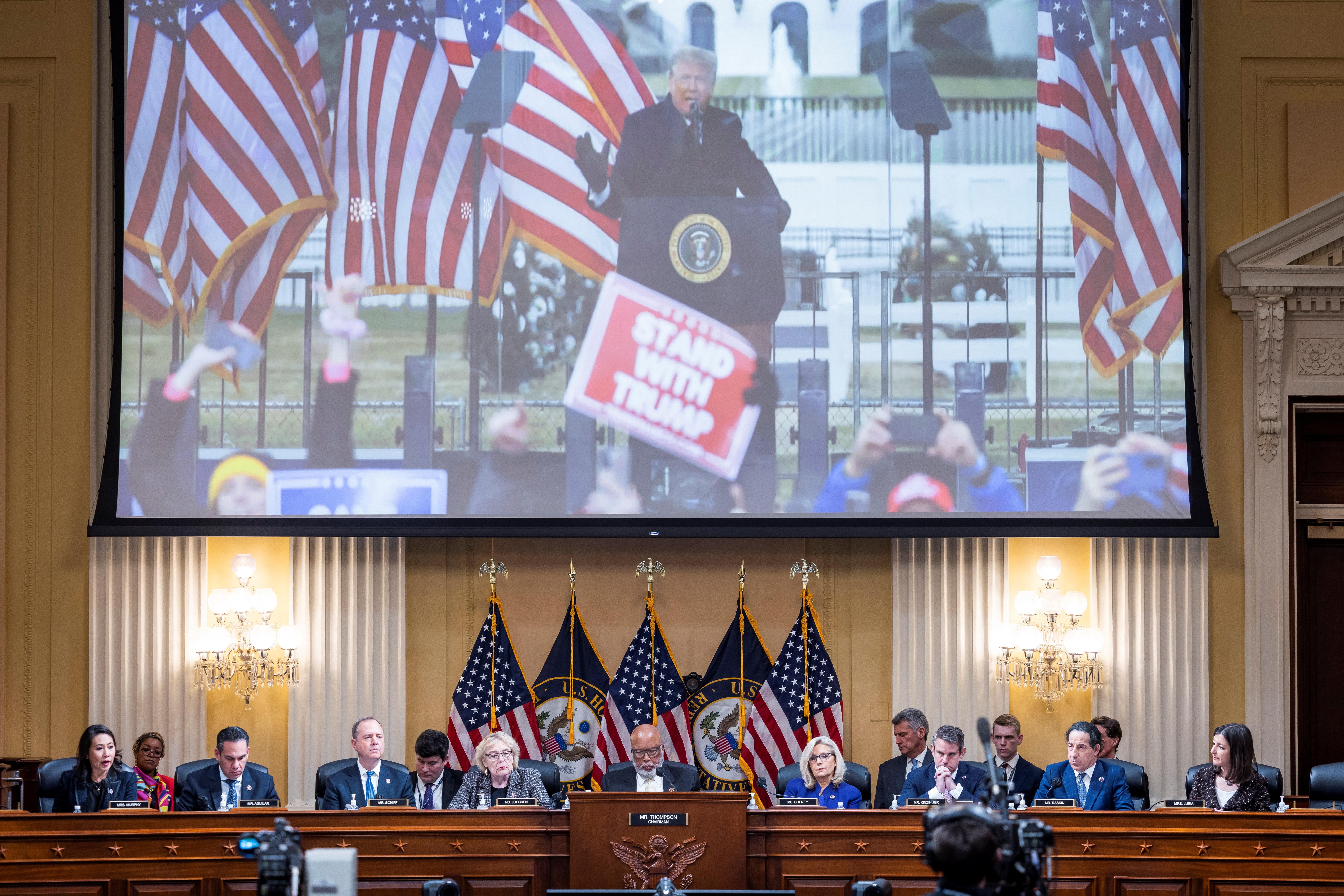What We’re Watching: Trump’s tough week, SCOTUS issues Title 42 stay, UK-Rwanda migrant deal is on
Jan. 6 panel recommends criminal charges for Trump
Donald Trump’s week got off to a rocky start on Monday, when the House committee investigating the Jan. 6, 2021, riot at the US Capitol referred the former president to the Justice Department for criminal prosecution. The referral is based on four alleged crimes related to the insurrection, including inciting or assisting an insurrection, obstruction of an official congressional proceeding, conspiracy to defraud the U.S., and conspiracy to make a false statement. It remains unclear whether the Justice Department – which is conducting its own investigation into the events of Jan. 6 – will take up the committee’s referral, which holds no legal weight. The panel also notably referred four Republicans, including House Minority Leader Kevin McCarthy, who is vying to become the next House speaker, to the House Ethics Committee for having ignored subpoenas to testify. But this is likely to have little effect because the committee, which is split evenly along party lines, rules by majority vote. Today, meanwhile, the House Ways and Means Committee will discuss whether to release Trump’s tax returns, which it finally has in its possession following years of legal wrangling. With the clock ticking on the Democrat’s House majority, the committee is expected to release the returns before Republicans take control next month. Attorney General Merrick Garland must now decide whether to charge Trump based on the historic recommendation by Congress.
Supreme Court issues stay for pandemic-era Title 42 migration policy
The future of Title 42 — the pandemic-era immigration rule invoked in 2020 by the Trump administration that allows the US to expel migrants without processing their asylum applications on public health grounds — is in flux after the Supreme Court issued a temporary stay late Monday. The Biden administration has until 5 p.m. EST to respond to an appeal by Republican-led states that succeeded in their last-ditch effort to convince SCOTUS to keep Title 42 in place, at least temporarily. Meanwhile, the government is now bracing for an influx of migrants at the US southern border, with some estimating that as many as 14,000 migrants could cross daily. For example, New York City Mayor Eric Adams has called for federal and state aid as he braces for a surge of migrant arrivals in the Big Apple that he says will crush the city’s already-strained shelter system. Indeed, immigration has always been a lightning-rod issue in the US, but temperatures are particularly high as Republican governors in southern states continue to transport thousands of migrants to blue states on buses and planes. This comes as a record number of migrants – many from Haiti and Venezuela – have already arrived at the US-Mexico border this year in a bid to flee economic hardship and political crises.
UK High Court deems Rwanda immigration deal legal
The British government says it remains committed to its Rwanda asylum plan after the High Court on Monday deemed it lawful. Introduced by former PM Boris Johnson, it was part of a deal struck in April between London and Kigali, whereby migrants who arrive in the UK would be sent to Rwanda to have their asylum applications processed – and would ultimately be resettled in the East African country. Rwanda, for its part, received £140 million ($170m) for playing ball. But because the deal has faced a slew of legal challenges, no migrants have yet been transported. Indeed, European human rights groups say the proposal violates international law and that it’s especially egregious given Rwanda’s poor human rights record. The court's decision landed just days after new UK PM Rishi Sunak, who backs the Rwanda policy, outlined a new plan to stop migrants from traveling in rickety boats across the English Channel. Still, appeal applications are expected in response to Monday’s ruling, and the Rwanda plan must remain on ice until all legal avenues are exhausted.* Correction: This Watching has been updated since our morning Signal newsletter to reflect SCOTUS' temporary block on lifting Title 42.
